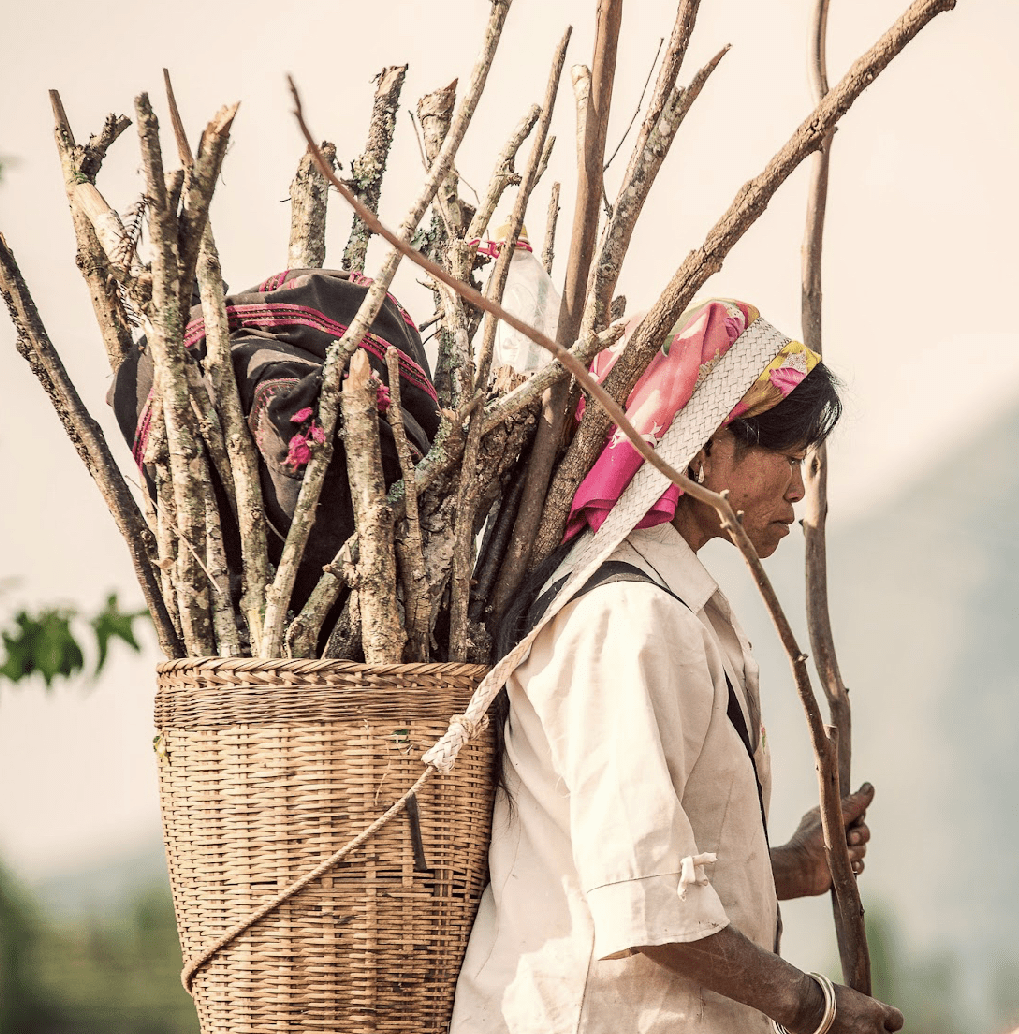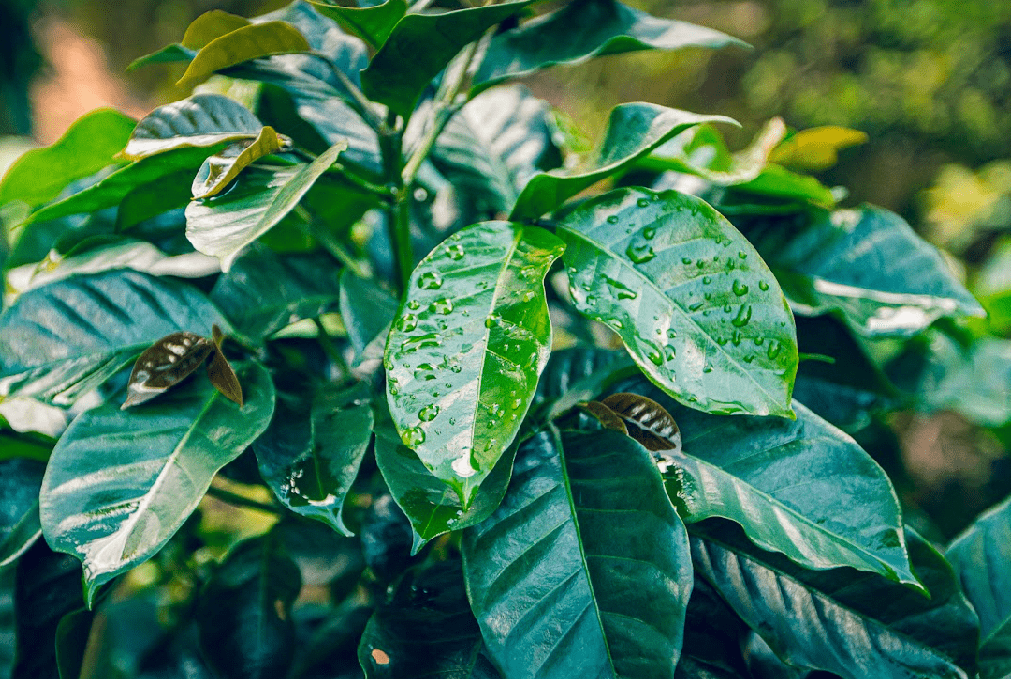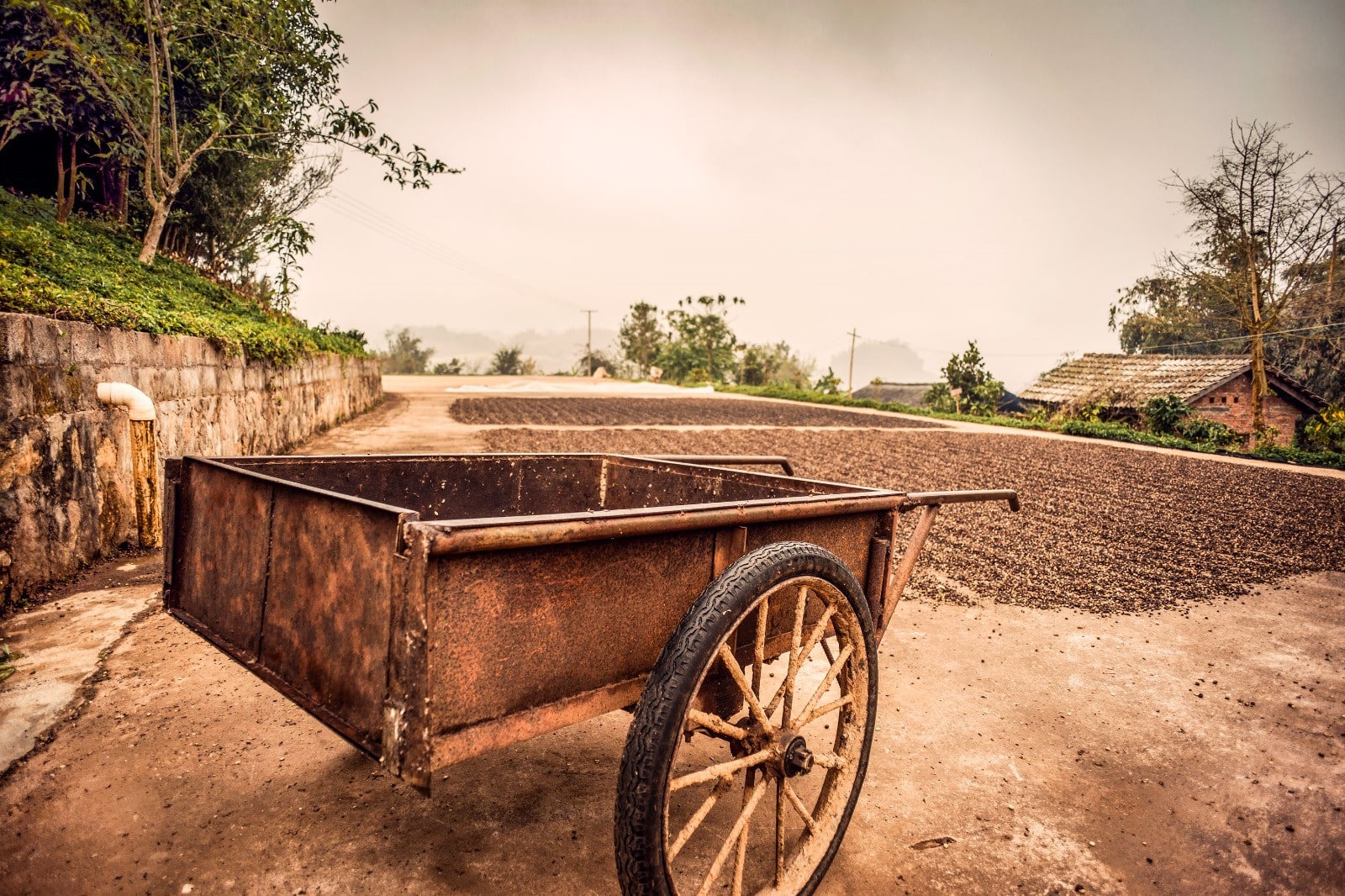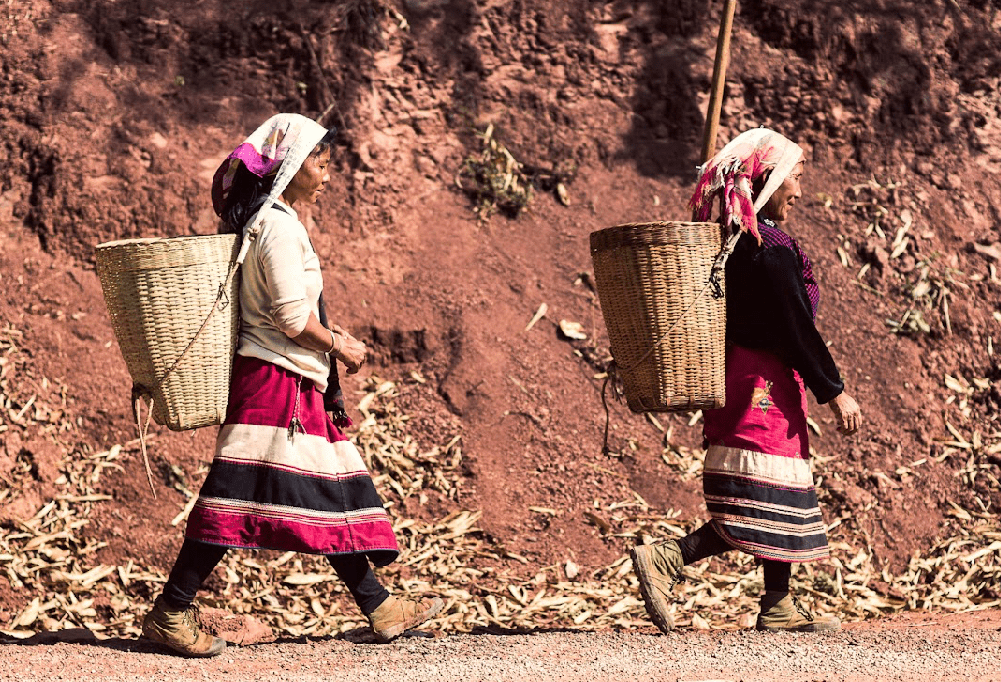China is a relative newcomer to the Specialty Coffee scene. Although some coffee has been produced in China since the late 1800’s (having been brought there by French missionaries), production at scale did not begin until the 1980’s. In a relatively short period of time — with the help of investment from the Chinese Government, the United Nations and a large coffee-roasting company — the country has made great strides. By 2016, China was counted among the top 20 global producers.
What’s more, internal consumption in China is growing rapidly. The U.S. Department of Agriculture estimates 2023/24 consumption at 5 million bags, making it the seventh-largest consuming country worldwide. Specialty Coffee culture is booming, creating an added driver toward increasing quality.
Coffee production takes place in western Yunnan province as well as in Pu’er, Baoshan, Dehong and Menglian. Most of the coffee produced in China is washed, however natural and honey processes can also be found.
Dongka
Dongka produces some of the most consistent Specialty Grade washed coffees in the Menglian region of Yunnan. This is due largely to Mrs. Na, who owns and operates the washing station. She purchases cherry from local farms on the mountain, creating a foundation of consistency year after year. Additionally, her practices have increased consistency, as well as quality and volume. (Dongka is a sizable producer, yielding 400 tons per harvest.)
In the Menglian region, coffee is picked by the local Wa tribe. For Dongka coffee, picking is also done by the Akha, Dai and Lahu tribes. (The farm and washing station owners are members of the Han people.)
Dongka coffee cherry is pulped and then fermented for 12 to 18 hours. Next, it is sun-dried on patios for approximately 10 days.
Cupping notes: Citrus, raisin, black tea
Bags available: 68 (60kg bags) Please confirm availability with your trader.











